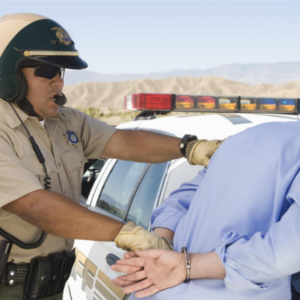In Texas, if a law enforcement officer suspects you of DWI, they can ask you to perform field sobriety tests (FST) or coordination exercises to assess your physical or mental impairment. The NHTSA officially recommends the following three FSTs:
-
OLS or one-leg stand
-
WAT or walk-and-turn
-
HGN or horizontal gaze nystagmus
In general, the law in Texas does not require you to submit to these tests or exercises, no matter much a police officer insists or repetitively asks you to take these tests. These tests will serve as an aid in the officer’s investigation of DWI, but they could be misinterpreted and you will be on the losing end. A seasoned Texas DWI defense attorney will usually never advise you to take these tests.
Low Rate of Accuracy

Field sobriety tests are almost never a reliable indicator that you are intoxicated. The NHTSA’s own research says that these tests are accurate only 66 to 75% of the time – provided the test is correctly administered. Clearly, any mistake of the police officer while administering these tests could lead to invalid results and put you at a disadvantage.
You are within your rights in Texas to refuse an officer’s request to check your eyes. Remain calm and polite while responding to their request for FST and say that you elect not to submit to any field sobriety test based on advice from your Texas DWI defense lawyer.
Do not Feel Pressured to Take an FST
If the police officer asks why you are refusing a field sobriety test, you can politely tell them that you refuse to answer this question unless you have had an opportunity to consult with a Texas DWI defense attorney. Police officers may sometimes try to say things that could pressurize or trick you into taking a test. These may include:
-
“I will not arrest you if you pass the field sobriety tests.”
-
“You will be put in prison if you refuse to undergo the FSTs.”
-
“If you refuse these tests, I will inform the court about it.”
-
“Your refusal to take the FSTs would be used as proof of your guilt.”
In reality, the field sobriety tests in Texas are completely voluntary. If you elect not to participate in these tests, the law cannot use it against you.

Poor Performance on FSTs can Occur due to Several Factors
An experienced Texas DWI defense lawyer would know that many factors can contribute to your poor performance on field sobriety tests. If the police officer fails you to give you proper instructions or you misunderstand the instructions, you may perform poorly on these tests.
You might be suffering from a specific medical condition that makes you inherently incapable of successfully performing coordination exercises. Fatigue is another reason why some drivers perform badly on field sobriety tests.
Speak to a Skilled Texas DWI Defense Attorney Today
If you or someone close to you is facing a DWI charge, you need help from the attorneys at Flood & Associates. We treat every client like family and we are committed to doing everything within the realm of law to protect your rights. Call us at 713.224.5529 for a free case review or complete this online contact form to set up a free consultation.









